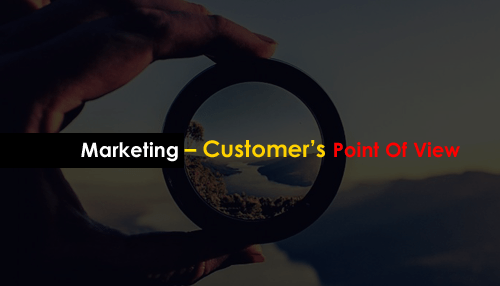The cost of the product and its value are not the same things. But defining the difference between the two can be a problem, mostly because the answer depends on who you are asking. In Marketing, for the company the difference is profit, but for consumers, it’s the whole reason they choose your brand and services.
Marketing efforts need to address this gap in understanding the product. That’s the only way the customers can feel like the advertising isn’t generic but addressed to them personally.
What are the customers paying for?
The reasons to take out your wallet and give someone your hard earned money are not so numerous. Finding and targeting those reasons is what appeals to most customers. In most of the service industries, you’re getting paid to save someone the trouble of doing something. For instance, account work – the focus of your advertising should not be on reliability or experience of your staff (this is to be expected), but on how boring doing taxes can be for someone, and how much easier it is to let someone else do it for you. Also, sometimes the reason for spending money is because it feels good to be able to do it. Have this in mind.
Being the part of the community
You can’t really put a price on this one – everyone is trying to, by the way – but it’s what creates loyalty to a brand. This isn’t that hard to achieve. Giving away custom shirts, mugs or USB drives with your company logo can be greatly appreciated by your customers, and it’s also a good way to advertise.
You can also create online spaces in which your clients can share their experiences, while you can use these channels to keep them informed about upcoming offers and sales.
Speaking the language
The language customers use to describe products and services – and especially the problems with them – is usually quite different than the one used by the company. Customers use more direct and more evocative terms, and they very rarely fall for the gimmicks companies try with rebranding. It doesn’t matter if you call it ultra deluxe special pro only option – if it’s the same thing for a bit more money, clients will know and refer to it as such. Have this in mind when creating an advertising strategy. Learn the language your customers use, and speak to them.
Customer experience doesn’t end when they leave the store
It really doesn’t. In fact for the customer, it usually just begins. You have sold your product and you’re done, but people who bought it, have to take it home and live with it for at least some time. This is especially important for products that require maintenance, updating or installing. It’s crucial to address these concerns in your advertising. Let your customers know that there will be someone to help them along the way. Just remember that there is a fine line between being helpful and being intrusive.
Keep the big picture in mind
Using your product or service is just a small part of your customer’s life. It’s a piece of the puzzle they’re trying to fit in. Make sure you understand this when you’re creating a marketing strategy for them. Try to gather as much information about your customers as you can. Use surveys and social media to find out how and why your company fits into their lives. Showing that you know and care about these matters is what creates a customer for life.
Don’t forget those who are not your customers
Not all the people who visit your site (or your store) become your customers. There is always a reason for this. Making a purchase is a difficult choice and it involves a lot of variables. It’s important for you to try to understand their points of view as well. Understanding what turned them away from your product in the last minute can be the point around which you will build your next campaign. That way you can address their concerns and issues before they come up.
For an inspiring campaign, it’s important to walk a mile in your customer’s shoes. You should pay special attention to your customer’s wants and needs, but you shouldn’t neglect your potential customers.
About Author
 My name is Alex Williams. I am a journalism graduate and a rookie blogger trying to find my luck. Blogs are the perfect opportunity for presenting yourself to the wider audience, getting the chance to showcase my expertise and receiving recognition. I am a regular contributor at Bizzmark Blog | Facebook | Twitter
My name is Alex Williams. I am a journalism graduate and a rookie blogger trying to find my luck. Blogs are the perfect opportunity for presenting yourself to the wider audience, getting the chance to showcase my expertise and receiving recognition. I am a regular contributor at Bizzmark Blog | Facebook | Twitter



